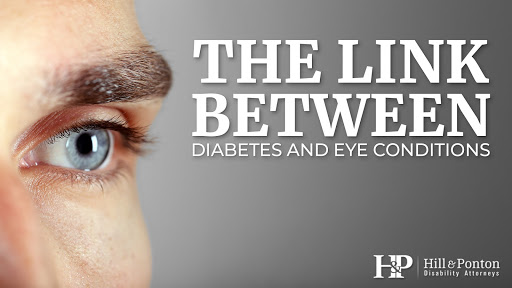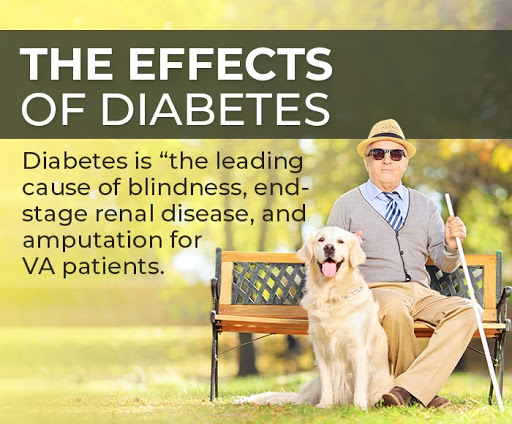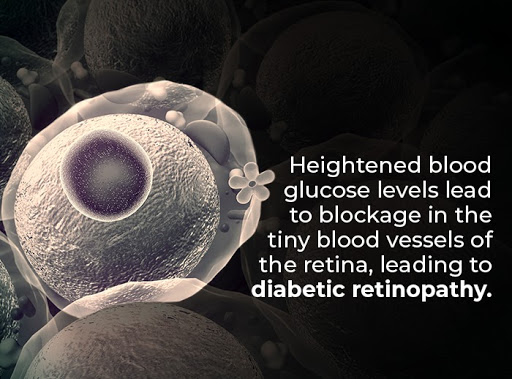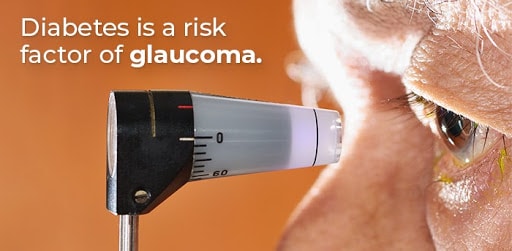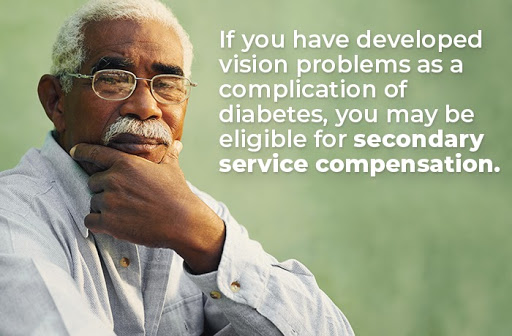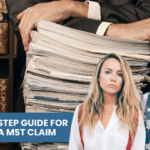The link between Diabetes and eye conditions
According to the Centers for Disease Control and Prevention 2020 Diabetes Statistics report, over 34 million Americans or 10.5 percent of the population have diabetes. Diabetes is unfortunately quite prevalent among the veteran population. For one, Type 2 Diabetes is one of the presumptive conditions associated with herbicide exposure during the Vietnam War. It should be noted that Vietnam veterans are not the only veterans that are affected by diabetes as a result of their time in service. Veterans may be eligible for disability benefits through direct service connection if they were diagnosed with diabetes during service or as a result of an in-service illness, event, or injury. Diabetes is associated with several conditions like hypertension, peripheral neuropathy, kidney disease, and an array of eye conditions. The VA Diabetes Fact Sheet updated in September 2019 reports that nearly 25 percent of VA’s patient population is affected by diabetes. Diabetes is considered the leading cause of blindness, vision loss, end-stage renal disease, and amputation for VA patients. This post focuses on the link between diabetes mellitus and eye disease.
Diabetes mellitus is a chronic condition that affects the body’s ability to process blood glucose (sugar). The pancreas either stops producing insulin or does not produce enough insulin to regulate normal blood sugar levels. The result is high blood sugar which damages many parts of the body. Diabetes can wreak havoc on blood vessels all over the body. The high levels of blood glucose damage blood vessels that cause diabetic eye disease to develop. The most common eye health problems linked to diabetes are diabetic retinopathy, diabetic macular edema, retinal detachment, cataracts, and glaucoma.
How is diabetes linked to eye conditions?
Unfortunately, the longer you have diabetes the more likely you are to develop diabetic eye disease and eye problems in general. According to the National Eye Institute, 40 percent of people with diabetes develop diabetic retinopathy. Heightened blood glucose levels lead to blockage in the tiny blood vessels in the retina which causes the abnormal blood vessels to swell, leak, or rupture. This is how diabetic retinopathy occurs. The retina is the thin tissue in the back of the eye that detects light and sends signals to the brain through the optic nerve. The retina is responsible for clear and sharp vision.
Symptoms of Diabetic Retinopathy and Related Issues
As diabetic retinopathy persists the blood vessels will bleed into other parts of the eye. This may cause floaters (floating spots, lines, or rings in the field of vision.)
Without proper treatment in the early stages, diabetic retinopathy can cause more severe conditions of the eye like diabetic macular edema and retinal detachment, or perhaps conjunctivitis., or perhaps conjunctivitis.. Diabetic macular edema occurs when blood vessels leak fluids and/or blood that cause swelling in the macula. Extra fluid in the eye can lead to distorted, shadowy, and blurry vision. Diabetic retinopathy can also cause scar tissue in the back of the eye that leads to retinal detachment.
Retinal detachment is a serious condition and should be treated as a medical emergency. Retinal detachment occurs when the retina pulls away or detaches from the blood vessels in the back of the eye. Blood vessels are essential to the health of the eye as they supply nutrients and oxygen to the eye. This condition can cause dark shadows to the sides of the eye or in the middle of the field of vision. If this is not treated right away it can lead to permanent loss of vision or blindness.
Cataracts and glaucoma are other eye diseases linked to diabetes. A cataract is a cloudy area of the eye lens. Symptoms of cataracts include blurred vision, double vision, sensitivity to light, dullness of color acuity, and trouble reading. Although the exact cause of glaucoma is unknown, diabetes is still considered a risk factor. There are several theories that discuss the development of glaucoma. One such theory links glaucoma with the accumulation of fluid due to lack of drainage, and a subsequent increase in eye pressure. This increased pressure causes damage to the optic nerve, which sends signals to the brain. While glaucoma cannot be prevented, it can be controlled if detected early. Early signs of glaucoma are headache, blurred vision, loss of peripheral vision, tunnel vision, seeing halos around light, and eye redness.
What you can do if you have diabetic eye disease
You can lower your chance of developing diabetic eye disease by managing your diabetes through diet, exercise, and adhering to the treatment plan outlined by your health care provider. Diabetic eye disease can be treated with medication, injections, laser treatments, and surgery depending on the prognosis, progression, and severity of the specific eye condition. The American Optometric Association recommends an annual dilated eye examination for people at risk, i.e people with diabetes, for glaucoma. If you are experiencing any of the aforementioned symptoms or any changes to vision, it is important to alert your health care provider immediately.
If you believe you have developed vision problems or an eye condition as a complication of diabetes, you may be entitled to secondary service compensation. Secondary service compensation is when a service-connected condition or injury causes a new condition or aggravates a nonservice-connected disability. In this case, if a veteran is service-connected for diabetes or seeking service connection for diabetes, either through presumption or direct service connection and later develops an eye condition like diabetic retinopathy, they can file a claim for diabetic retinopathy secondary to diabetes mellitus.
To receive compensation for this secondary condition, you need a current diagnosis of an eye condition or disease. When making a connection between diabetes mellitus and a related diabetic eye condition, evidence is needed to support your claim. Service treatment records, private medical records and VA medical records detailing your condition can be used to support this secondary claim. Medical articles and literature that discuss the relationship between diabetes and specific diabetic eye disease are also beneficial to your claim for disability benefits. A favorable medical opinion from a doctor, particularly an endocrinologist or ophthalmologist (an eye doctor), that states that your eye condition is caused by, or a complication of, diabetes mellitus may also be very beneficial for your claim. If a secondary service connection is granted for your eye disability, a comprehensive eye exam will help assess the severity of your condition and the rating percentage that the VA could potentially assign to your claim. You can file a claim for the existing eye condition as secondary, or as a complication of, diabetes mellitus by visiting with the Veteran’s Administration by visiting their website. If you need help in appealing a VA claim you can contact us for a free case evaluation.
